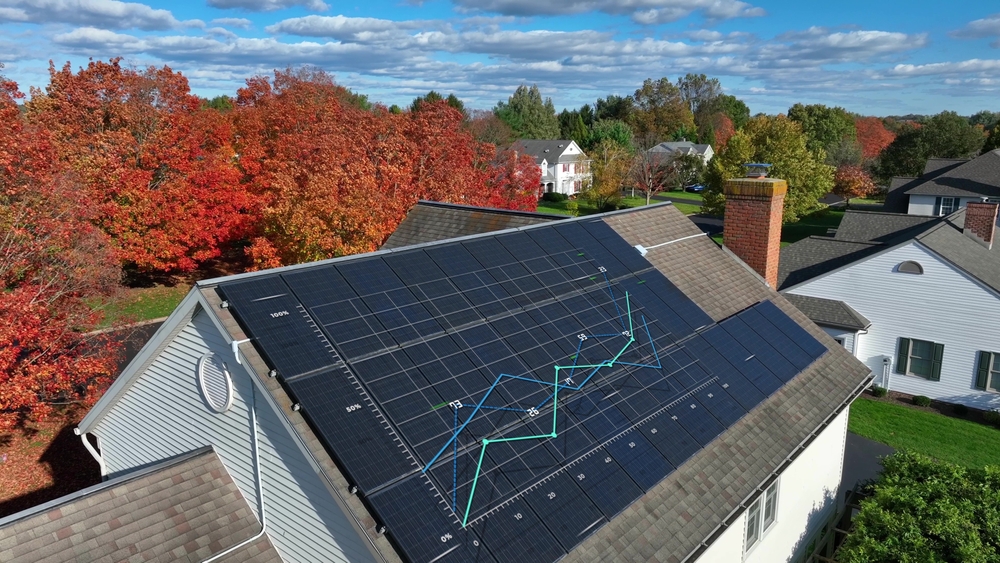
There are several topics that tend to carry the day when considering solar panel installation for your home or building, and efficiency is one of the most notable. A common question here: How efficient are solar panels?
At Intermountain Wind & Solar, we proudly serve as one of the top solar companies around Salt Lake City, Utah and Boise, Idaho, providing clients with solar panel installation in both residential and commercial settings. The answer to the above question depends on several factors - for starters, not all solar panels are created equal when it comes to efficiency. In addition, there are also several environmental or usage-based factors that tend to impact solar panel efficiency. Here's a full rundown of the different variables that should be considered when it comes to the efficiency of your solar panels.
When it comes to solar panel efficiency, one of the most crucial factors to consider is the material used in their construction. Different materials conduct electricity differently and may also absorb sunlight at varying rates - ultimately affecting overall efficiency. Some common materials used for solar panels include monocrystalline silicon, polycrystalline silicon, and thin-film panels.
Monocrystalline silicon panels are made from single-crystal cells and tend to be highly efficient - with some reaching up to 22% efficiency. On the other hand, polycrystalline silicon panels are made of multiple small crystals and typically have lower efficiency rates (usually between 15-17%). Thin-film panels, which are typically made of amorphous silicon or cadmium telluride, are more affordable but have lower efficiency rates compared to crystalline silicon panels.
One of the most vital components in any solar panel system is the inverter, which converts DC electricity generated by your panels into AC electricity that can be used to power appliances and devices. Inverters come in different types - with string inverters, microinverters, and power optimizers being the most common options on the market.
String inverters are usually more affordable but may not be as efficient as microinverters or power optimizers. Microinverters are attached to each individual panel and convert DC electricity into AC right at the source, making them more efficient in certain situations. Power optimizers, on the other hand, work similarly to microinverters but are typically placed at a central location - providing a balance between efficiency and cost.
Another critical factor that tends to impact solar panel efficiency is shade. If your panels are installed in an area that receives consistent shading throughout the day, it's likely that their overall output will be affected. Shade from nearby buildings, trees or other structures can significantly reduce solar panel efficiency - making it essential to carefully consider the location of your panels during installation.
The orientation and angle at which your panels are installed also play a vital role in their efficiency. Solar panels are most efficient when they are facing directly towards the sun - meaning that their orientation should be optimized based on the geographic location of your home or building.
In addition, the angle at which your panels are installed can also impact efficiency. A general rule of thumb is to install solar panels at an angle that is equal to the latitude of your location - for example, if you live at a latitude of 40 degrees, you should aim for an installation angle of 40 degrees.
When we talk about soiling, we're referring to bits of dust or other material that accumulate on the surface of solar panels. While this may not seem like a significant issue, it can significantly impact efficiency - especially in areas with high levels of pollution or dust.
Soiling is one area that solar panel owners can easily address themselves - by regularly cleaning their panels to ensure maximum efficiency. In areas with more severe soiling issues, it may also be beneficial to invest in self-cleaning solar panels or install them at an angle that allows for rainwater to naturally clean the surface.
Separately from sun or shade exposure, temperature can also impact solar panel efficiency. Like most electronic devices, solar panels tend to be less efficient in higher temperatures - meaning that extreme heat can potentially reduce their output.
However, this is typically only a minor factor when it comes to overall efficiency - and modern solar panels are designed to withstand high temperatures without significant decreases in performance.
As you may have guessed, another common factor that can affect solar panel efficiency is the age of the panels themselves. Over time, solar panels may experience wear and tear - especially if they are not well-maintained or if extreme weather conditions occur.
Regular maintenance and inspections can help identify any potential issues with aging panels and ensure their continued efficiency over time.
When considering the overall efficiency of solar panels, it's essential to remember that each system is unique and may be impacted by various factors. It's always best to consult with a professional solar company like Intermountain Wind & Solar to assess your specific situation and determine the best solution for optimal efficiency. With proper installation, care and maintenance, solar panels can provide significant energy savings and environmental benefits for years to come. Contact us to learn more about our solar power services for clients around SLC, Utah or Boise, Idaho.





"All of the photos on this website are of real projects that Intermountain Wind & Solar has designed and installed.
We are proud to show off and stand behind our work."